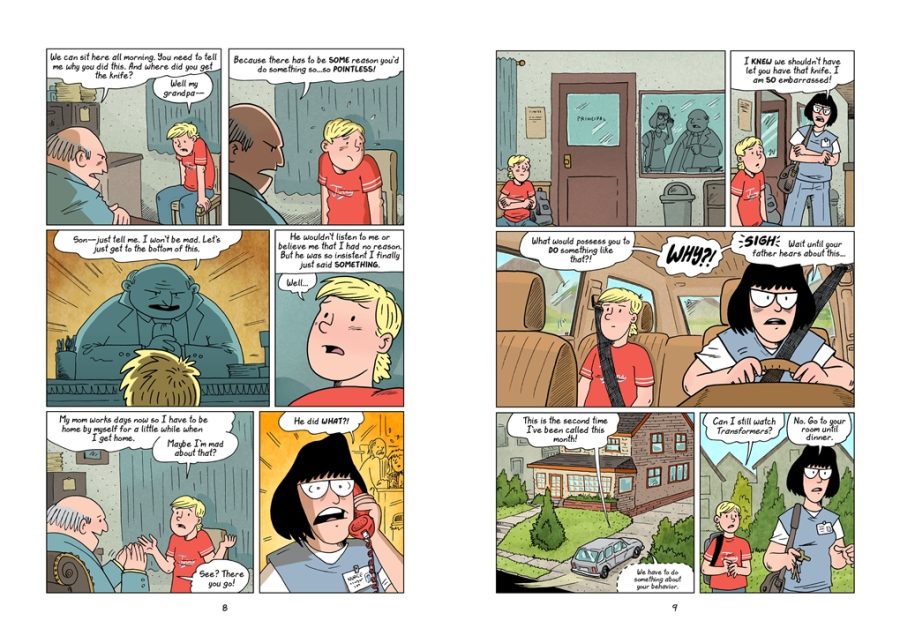Button Pusher Review
February 27, 2023
Button Pusher is a graphic novel memoir about Tyler Page’s childhood struggle with ADHD. The book is aimed at a younger audience of 10-14, so the content is generally light despite some heavier topics.
The book begins with a young Tyler getting into serious trouble for cutting the seat of his school bus, resulting in a visit to the doctor for impulsive behavior. He tries therapy, but it’s agreed that medication would be a more effective treatment. His experience with Ritalin becomes a key component of his experience with ADHD, especially as Tyler grows up and gains increased autonomy.
The plot is occasionally interrupted by infographics—sections dedicated to medical and historical information about ADHD. These match the narrative to provide context for Tyler’s behavior. There’s a graphic about how the brain functions; “ADHD meds are kind of like glasses for your brain” is a simplistic, but effective message that’s relatable enough for the target audience to grasp its concept. While sections like these can be effective at teaching kids about ADHD, they occasionally overstep their complexity. Page lists several “Candidate Genes” including an exhaustive list of things like “Synaptosomal-Associated Protein 25,” and while accuracy is appreciated, details this specific feel alienating for younger readers.
Page’s art style is both appropriate for the audience and easy to follow. It’s reminiscent of a comic strip style, sometimes using a plain gradient background, but oftentimes indulging in more detail. Unfortunately, Tyler’s aging in the story sometimes struggles to be conveyed in the art. There’s a panel that shows a side-by-side of how his appearance has changed as he’s gained weight, but in the following panels, the way that he’s drawn is more akin to the previously thinner Tyler. This makes it difficult to keep track of the character’s ages and becomes increasingly distracting throughout.
The novel ultimately shines in its complex portrayals of people. His mother is the glue that holds the family together but also struggles to justify her marriage. His father is shown a surprising amount of grace considering his anger issues; Page may feel upset about the way his father treated them, but he also illustrates that they had positive moments together as well. The book is equally about family as it is about ADHD and is amazingly complex and realistic in this regard.
While it sometimes bites off a bit more than it can chew with its many emotionally charged subplots and the art sometimes struggles to keep up with the story, Button Pusher successfully provides an account of growing up with ADHD. The novel could be a valuable resource for juvenile audiences encountering these topics for the first time, but adult audiences could find it lacking.

